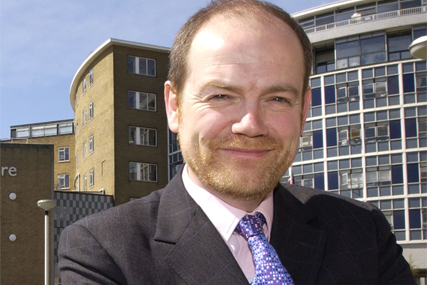
Thompson took the stage two sessions after culture secretary .
Hunt had praised the BBC, saying he was encouraged by the corporation's attitude to exploring partnership possibilities in the development of the local TV sector.
Two years ago an earlier attempt by ITV to secure the BBC's partnership in supporting local news production came to nothing, but Thompson defended the corporation's attitude to ITV and argued co-operation with local TV providers could be different.
He said: "The central issue was that you had two very similar broadcasting ambitions of programmes broadcasting at almost the same length at virtually the same time of day and sometimes simulcasting. So the idea of sharing facilities was very difficult to achieve.
"[The idea of partnerships with local television] is a very different proposition, it's much more of a blank canvas, it's not obvious that the broadcasting would be synchronous. So the idea of sharing studios, sharing facilities, exchange of material, training, are probably more credible … than they were with ITV.
Thompson's words leave open the possibility that the BBC could support local newspaper groups should they choose to pursue Hunt's vision.
However, he said the BBC would be careful to ensure there was no transfer of value from the licence fee payer to commercial bodies.
His interviewer in the session, media journalist Steve Hewlett, posed the question of whether a local TV company exchanging the rights to use a clip of a small fire in a factory in Doncaster for a John Simpson report in China represented such a transfer of value.
Thompson appeared to concur, and expressed caution about the BBC's impact on the value of content sold by commercial enterprises such as Reuters and AP.
He also expressed support for universal broadband rollout and the development of IPTV, but revealed little on the progress of discussions with the government about how the amount the BBC has underspent on promoting digital TV switchover could be used to support the rollout of broadband.
Thompson said: "The BBC has a strong interest itself in universal broadband rollout, precisely so we can get the richest version of our services to every household. It is one of our six public purposes."
Thompson also revealed the BBC is preparing a push next month to encourage older people to go online with a campaign involving 'The Archers' character Peggy Archer using the internet.



.jpg)
.jpeg)
